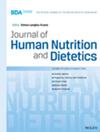Short-term impact of bariatric surgery on the dietary intake of patients with type 2 diabetes
Abstract
Background
The prevalence of overweight and obesity and an unhealthy diet and lifestyle are the key causes of rising diabetes burden in India. Bariatric surgery is gaining popularity in India as a favored approach to manage obesity and its accompanying comorbidities. Despite this, there is a scarcity of Indian studies evaluating dietary intake. Our goal was to analyse the dietary intake of Indian patients with type 2 diabetes mellitus (T2DM) who have undergone laparoscopic sleeve gastrectomy (LSG) or duodeno-jejunal bypass with sleeve gastrectomy (DJB-SG) or surgeries.
Methods
The longitudinal observational study included 64 T2DM patients (32 in each procedure) enrolled through purposive sampling. The patients underwent surgery (LSG or DJB-SG procedure) between January 2017 and July 2019. Dietary data was collected at baseline and postsurgery (12 months) using a 24-h dietary recall method for 2 days (one working and one holiday).
Results
The total sample consisted of 27 (42.2%) females and 37 (57.8%) males. The mean age was 46.8 years. At 12 months, the follow-up for the LSG and DJB-SG procedures was 100% and 78%, respectively. In the short term, a significant reduction was seen in weight, body mass index and haemoglobin A1C (HbA1C) in both surgical groups. The two procedures were comparable with respect to weight loss but improvement in glycaemia was higher in the DJB-SG group. The dietary intake (food groups and nutrients) was similar in the two surgical groups at baseline and 12 months postsurgery. Dietary intake assessment showed significant reduction in calorie dense foods (cereals, roots and tubers, fats and oils, table sugar, and biscuits) in both surgical groups. Among nutrients, intake of energy, fats, carbohydrates, dietary fibre, thiamine, riboflavin, niacin, folate and iron were reduced significantly in both procedures. Vitamin D (84.4% patients in LSG group and 81.3% patients in DJB-SG) and iron (62.5% patients in LSG group and 68.8% patients in DJB-SG) were commonly prevalent nutritional deficiencies at baseline and were significantly reduced at 12 months.
Conclusions
In the short term, bariatric surgery resulted in weight loss and improvement in glycaemia. Bariatric surgery does significantly affect dietary intake leading to nutritional deficiencies. Therefore, patients should be recommended vitamin and mineral supplements and regular patient education and counselling by a trained bariatric dietitian to prevent nutritional deficiencies and maintain nutritional status.

 求助内容:
求助内容: 应助结果提醒方式:
应助结果提醒方式:


